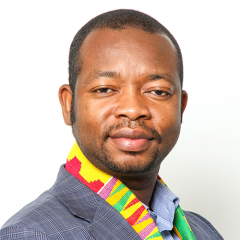Past Event! Note: this event has already taken place.
Political Science Workshop: The Grand Split? How The World is Dividing
April 18, 2024 at 9:30 AM to 3:30 PM
| Location: | 3224 Richcraft Hall |
| Cost: | Free |
Registration is now closed
The condition of world politics has reached the point of a severe crisis. The system of global governance and the international order it was based on is shaking. Some would see this as a crisis of legitimacy, others as an institutional breakdown, and some as a crisis of the western hegemonic rule-based order established after World War Two.
The international system is reconfiguring, and it is likely that more challenges and conflicts are coming. The present moment is an ideal time to rethink and reconceptualize our approaches to the new environment of international relations. In this regard, we would like to create space for the Political Science faculty and MA/PhD students (and invited guests) in the form of a one-day informal workshop to share their respective views.
Panel One: What is new in our perceptions of world politics?
9.30 – 11.30
 Piotr Dutkiewicz
Piotr Dutkiewicz
The Split: Re-defining the basics
My goal is to sketch a complex process of what I call the Grant Split in which some of the so called “rest” questioned the rule by the “west” moving from competition to confrontation and then from confrontation to an open conflict. Countries of the “South” more openly deny the universalization of the western norms, institutions, principles, and values. Their defiance – until recently – mostly presented in civilizational/cultural terms has moved by now to re-define key IR concepts such – for instance – as sovereignty , security and national interests. In many ways such approach directly clashes with western supported “norm-based order”.
 Laura Macdonald
Laura Macdonald
North American regionalism in a fracturing world order
This presentation adopts a critical political economy perspective to examine the intensification of regional integration in the North American region in a context of geopolitical and geoeconomic conflict with China, the impact of the COVID pandemic on global supply chains, the “friendshoring” phenomenon and increased U.S. protectionism under first Trump and then Biden. I will review evidence on the intensification of regional value chains, and the implications of the renegotiated NAFTA agreement for labour rights, including the rights of women workers and migrant workers. Finally, I discuss the implications for the future of world order. The presentation builds on research I have conducted as part of a SSHRC-funded research grant on Transnational Activism in North America.
 Isaac Odoom
Isaac Odoom
China-Africa Relations in a Changing Landscape of Global Governance
As the global system undergoes reconfiguration, marked by challenges to Western hegemony and the rise of alternative power centers, China’s engagement with Africa emerges as a pivotal element potentially shaping the future of global politics. This paper explores the dynamic interplay between Africa and China amidst shifts in global power dynamics, examining the implications for both regional and global governance. By examining the complexities of economic cooperation, geopolitical influence, and socio-cultural exchanges, the paper explores the evolving nature of Africa-China relations and their impact on the broader international order. Through a critical analysis of historical legacies, contemporary challenges, and prospects, the paper contributes to a nuanced understanding of the role of China-Africa relations in shaping the emerging world order.
 Brian Schmidt
Brian Schmidt
The Rise of China and the Decline of the United States: Power Transition and War or Peaceful Change?
The near consensus that China is a rising power, and the United States is experiencing relative decline has led both scholars and policymakers to think carefully about how this dynamic might play out in the near future. The power transition school offers a dire prognosis that a great power war between China and the United States is serious possibility. I will explain the power transition school and why they believe war between China and the United States is a distant possibility. I will also examine a body of literature that looks at peaceful change as a way of accommodating changes in the distribution of power without the mechanism of Great Power War. In this regard, the paper will consider two very different bodies of literature on one of the most pressing issues of the time; namely, the rise of China and what this means for international order in the twenty-first century.
Lunch: Provided
11.45 – 13.00
Panel Two: A Different World Order – new challenges for International Relations
13.00 – 15.30
 Fiona Robinson
Fiona Robinson
Inequality and Hatred in a Depleted World
After decades of neoliberalism inflicting harms on the most marginalized, the global economy is currently reeling from the shocks of COVID-19 and Russia’s war in Ukraine, which disrupted food and energy production and distribution, driving up costs for people around the world. Income inequality, debt and inflation remain high, while, in many countries, wages fail to keep pace. Amidst this ‘geoeconomic fragmentation’ (IMF 2023) we are witnessing the rise of authoritarian-nationalism in many countries from all regions of the world, including Europe, where ‘far right parties defend the ‘identity of nations and our civilisation when faced with immigration and Islamisation, defence of economic freedoms, and the safeguarding of our values against wokeism’ (Marachel 2024). A key constitutive feature of this movement is the subordination and violent oppression of women and ‘feminized Others’ as a method of preserving the values of the nation and the so-called ‘traditional family’. In this presentation I suggest that authoritarian-nationalist misogyny must not be understood as a ‘fringe’ or ‘women’s’ issue, but as a constitutive political strategy for entrenching support, deflecting attention from anti-democratic policies, and intimidating and silencing opposition while severely compromising women’s rights, health and security.
 Hans-Martin Jaeger
Hans-Martin Jaeger
Liberal international order, colonial-imperial aporias, and geontopower
It may by now be postcolonial common sense that debates about the crisis or resilience of liberal international order or international society in mainstream IR much like invocations of rules-based international order by Western policymakers remain fraught by (at best obliquely acknowledged) silences and aporias around, if not nostalgia for, Western colonial and imperial legacies and ongoing colonialities of power. How else to make sense of Western opposition to Russia’s imperial designs on Ukraine and simultaneous support for Israel’s ongoing colonial (or necropolitical) rule over Palestinian territories and lives? Or 32 Western countries’ co-sponsorship of Ukraine’s case against Russia under the Genocide Convention at the ICJ, while withholding (or at best, tepidly endorsing) a similar commitment to rules-based international order in South Africa’s case against Israel under the same convention? Beyond these colonial-imperial aporias, my intervention will explore whether such legitimate postcolonial concerns over life and death may yet be obscuring larger “geontopolitical” challenges of the Desert, the Virus, and the Animist at the boundary of life and nonlife (Povinelli 2016) looming in the background and the future of current geopolitical conflicts.
 James Milner
James Milner
The shifting politics of asylum in a dividing world
The global refugee regime was one of the many global governance arrangements to emerge in the aftermath of World War Two. Comprised of norms (such as the 1951 Refugee Convention) and an institution (UNHCR), the regime was intended to facilitate cooperation to ensure protection for refugees and find lasting solutions. By any objective measure, however, the regime is not able to perform these functions. The current state of the regime is both a result of new geopolitical fault lines, both North-South and East-West, and a context in which the dividing world can be examined. This presentation will outline the thematic and geographic shifts that have emerged in the global governance of refugee responses since 2016. Drawing on examples from East Africa, the Middle East and global discussions in Geneva, the presentation will argue that the regime presents a critical context in which the Grand Split can be observed and explained.
 Aaron Ettinger
Aaron Ettinger
The Pedagogy of Global Disorder or “There’s No Textbook for This”
If we are in the midst of a Grand Split, then it is the responsibility of IR researchers to explain that inflection point. The same applies to IR teachers but with different challenges and imperatives. This paper/presentation will address the “taught discipline” of IR and how IR scholars can adapt their pedagogical agendas to meet the moment. This includes (a) recontextualizing the place of the IR/political science canon; (b) confronting the challenge of balancing empirical depth with a vastly expanding empirical scope in our teaching; and (c) diversifying pedagogy so that the limits of the professor’s knowledge do not become the outer perimeter of what is possible in the classroom. This discussion draws from my recent article “Global International Relations and Worlding Beyond the West: A Pedagogical Critique” published in International Studies Review (2023).
Register
Thank you for your interest. This event is now full.